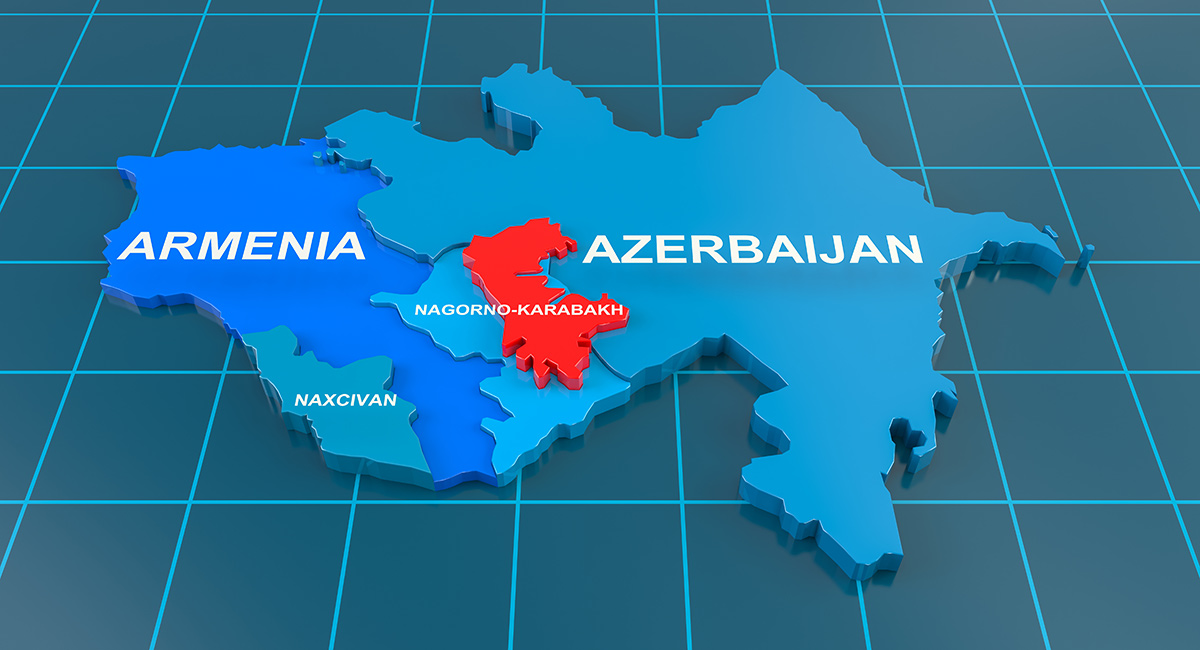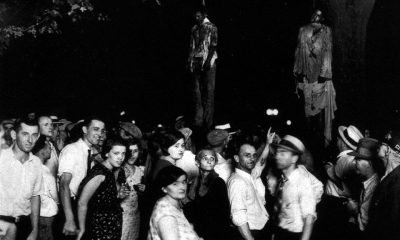States
Council Of Europe’s Anti-Discrimination Commission Releases Armenia, Azerbaijan, And Georgia Monitoring Reports And Norway Findings.

Council Of Europe’s Anti-Discrimination Commission:
Armenia, Azerbaijan, and Georgia’s successes and problems in combatting racism and promoting inclusion were examined in the Council of Europe’s Commission Against Racism and Intolerance (ECRI) latest monitoring reports. While ECRI released its 2021 recommendations, Norway’s implementation was also assessed.
Armenia made progress in inclusive education, migrant integration, and anti-discrimination laws during the previous seven years, according to ECRI. The lack of action against hate speech and discrimination, delays in the Equality Law, and the restricted breadth of discriminatory grounds covered by current law remain issues.
Azerbaijan’s study noted excellent progress in education and migrant integration but stressed the need for more vital legislation and suppressing provocative language and hate speech, particularly in politics.
ECRI review of Georgia’s growth showed legislative and policy improvement since 2015. However, it highlighted ongoing bigotry and intolerance toward specific ethnic and religious communities, particularly LGBTI people. Poor Georgian language education for historical ethnic minorities and Public Defender reputation difficulties were also noted.
The Commission Recommends That Each Nation Adopt Two Priority Proposals And Evaluate Progress Over Two Years.
ECRI’s analysis of Norway acknowledged the excellent execution of an action plan concentrating on LGBTI human rights, particularly transgender and intersex rights. However, the proposal for multicultural sensitivity and expertise in child welfare services is only partly implemented, highlighting the need for further effort.
The ECRI studies and conclusions advocate for joint efforts to overcome persistent difficulties and create a more inclusive and equitable society throughout these European states.
Armenia’s Racism Fight: Progress And Challenges
Over the last seven years, Armenia has made significant progress against racism in inclusive education and migrant integration. Despite these beneficial advances, questions remain about inadequate racism prevention efforts for Black and other minority communities. Anti-discrimination measures are hampered by the Human Rights Defender institution’s lack of an equality mission. The delayed passage of the Equality Law and its inability to include all discrimination grounds create legal loopholes that leave underprivileged populations exposed to prejudice. For Armenia’s Black people to be protected and empowered, substantial legal and social reforms are needed, as ECRI has highlighted.
Racial Conflict In Azerbaijan And Its Effect On Black People
The fight against racism in Azerbaijan has shown mixed results in education and migrant integration. However, heated language and hate speech, especially at the highest governmental levels, have made life difficult for Black people and other oppressed groups. The lack of comprehensive anti-racism legislation has perpetuated discrimination. The Council of Europe’s anti-racism body’s appeal for stronger laws and stricter hate speech bans resonates with Azerbaijan’s Black community’s urgent need to protect its rights and dignity.
Uphill Battle Against Racism In Georgia’s Black Community
Since 2015, Georgia’s legislative and policy efforts to eradicate racism, notably against Black people, have improved. Ethnic and religious minorities and LGBTI people still face bigotry and intolerance. The apparent shortcomings in education, especially teaching the Georgian language to historical ethnic minorities, reinforce structural inequities that limit Black people’s education and possibilities. The Public Defender’s bad image and the national equality body’s ineffectiveness have exacerbated Black people’s hardships. ECRI’s urgent proposals emphasize the necessity for fundamental changes to safeguard and include Black people in Georgian society.
Read Also: The ACLU Sued A Georgia School System System For Ignoring Discrimination Against Blacks
Armenia’s Inclusive Education Journey And Black Communities
Armenia’s development in inclusive education is a significant step toward fighting prejudice. Diversity initiatives have made schools more inclusive and egalitarian. Discrimination and racial stereotypes still affect Black students’ education. The lack of focused strategies to meet Black students’ needs in educational institutions remains a significant problem despite diversity and inclusion initiatives. The government, educational institutions, and civil society must work together to enhance cultural awareness, inclusion, and equitable educational opportunities for everyone, especially Black students.
Azerbaijan’s Hate Speech Problem With Black Communities
Hate speech and provocative words hinder Azerbaijan’s fight against racism, especially for Black people. Discriminatory narratives and biased beliefs, frequently promoted at the highest governmental levels, have created a hostile atmosphere for disadvantaged groups. Despite significant legal and regulatory advances, the absence of tangible initiatives to counter hate speech has created a culture of intolerance, affecting Black living standards. To create a more peaceful and welcoming society that respects everyone, especially Black people, hate speech must be eliminated and inclusion and cultural understanding promoted.
Georgia’s Complex Equality Road And Black Community’s Struggle For Recognition
Georgia has struggled to eliminate racism, notably in its treatment of Black people. While legal and regulatory changes have helped Black people, deep-rooted stereotypes and structural injustices still limit their social and economic progression. Limited career prospects and prejudice in different fields have prevented Black people from fully participating and being recognized. Comprehensive changes to overcome Black community structural and sociocultural barriers are essential. Georgia can establish a culture that values diversity and respects everyone, regardless of race or ethnicity, by promoting inclusion, respect, and acknowledgment.

-

 States2 weeks ago
States2 weeks agoPearlie Golden 93-Year-Old Black Woman Shot By Texas Cop
-

 States2 weeks ago
States2 weeks agoLayers Of Racial Tension The Mario Woods Tragedy And San Francisco Path To Justice
-

 States2 weeks ago
States2 weeks agoTragedy Unveils Racial Tensions Tarika Wilson Story
-

 States2 weeks ago
States2 weeks agoLynching Of Thomas Shipp Tragedy Of Racism Echoes Through History
-

 States2 weeks ago
States2 weeks agoThe Killing Of Terence Crutcher And The Fight For Racial Justice

















You must be logged in to post a comment Login